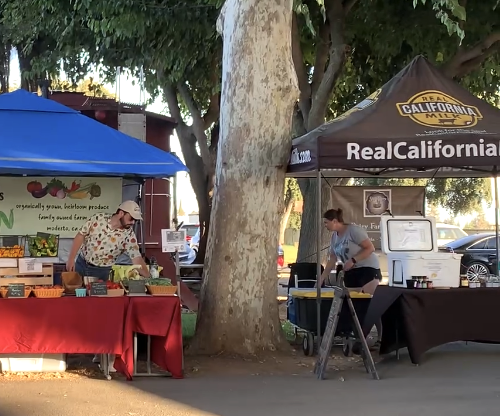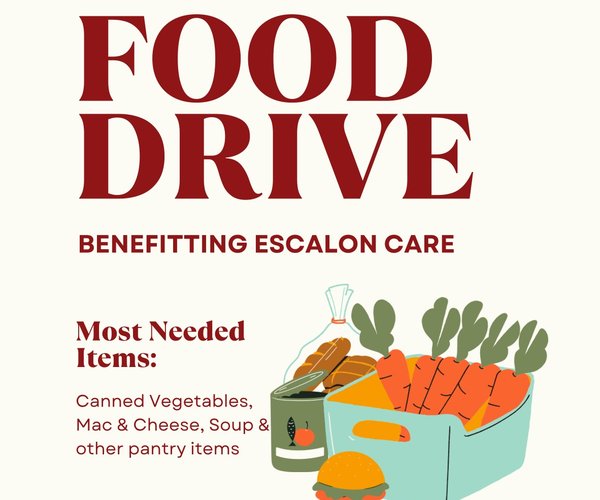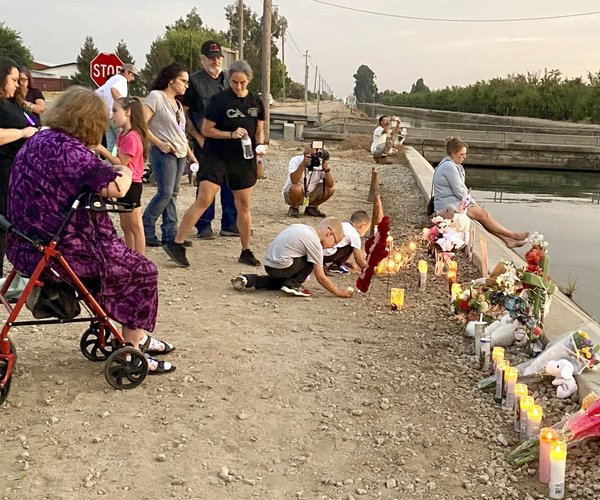Back-to-school season is in full swing, and California Poison Control System (CPCS) is offering safety tips to help parents ensure their children have a safe, poison-proof school year.
“It’s important for parents to talk with them about potential poison safety issues they may encounter during the school year,” said Dr. Rais Vohra, Medical Director for the Fresno/Madera Division of CPCS. “The risks of poisoning can include many things we don’t normally think about, such as social media dares, certain school supplies, medication misuse, and other issues that could affect their children.”
Officials note there are five important things to discuss with your children to help keep them safe as they settle in to the school routine.
Social Media Challenges and Dares
Talk openly and frequently with your kids about the potential dangers of social media challenges, such as eating laundry pods or taking large amounts of over-the-counter medicines. Make sure they understand a few brief minutes of viral fame, ‘likes’, and ‘shares’, are not worth their lives. Remind them that walking away if someone dares them to do something potentially dangerous isn’t stupid, it’s smart.
Recreational Drugs
The temptation to experiment with recreational drugs can be exacerbated by peer pressure. Two drugs in particular—fentanyl and cannabis—are particularly prevalent. To prevent potential poisoning, parents need to have an honest discussion with their kids about the dangers of these drugs and how they often lead to overdoses and death.
In 2023 nearly 73,000 drug overdose deaths were the result of synthetic opioids, primarily illegally made fentanyl says the CDC. Illicit fentanyl is often mixed into counterfeit prescription drugs, as well as other street drugs such as methamphetamines, heroin, and cocaine. But there’s no way you can tell if fentanyl is in these drugs, nor do you know how much might be in it, and that can cause lethal consequences.
Cannabis edibles have become so pervasive that there has been a dramatic increase in the number of incidents being reported to CPCS. In 2022, exposure to cannabis edibles was responsible for more than half of the cannabis-related calls to CPCS, including 57 percent for victims 6-19 years of age.
Medication Misuse
All medications can be dangerous and have serious side effects, even death, if taken by the wrong person or not taken as directed. So make sure your kids understand that they should not take any medicine unless it comes from you or another responsible adult, such as a teacher. Additionally, in the rush to get everyone off to school, parents need to be extra vigilant to avoid accidentally giving the wrong medicine or a double dose of a medicine to your child. Slow down, keep all medicines in their original containers, and read the label every time.
Hand Sanitizers
To help protect them from germs, more often than not hand sanitizers are part of many kids’ back-to-school supplies. The problem with these products is that they can be a poisoning hazard. Many hand sanitizers are made with ethanol-based alcohol, which is safe when properly used as directed, but can cause alcohol poisoning if more than a couple of mouthfuls are ingested. Symptoms of alcohol poisoning include confusion, seizures, loss of balance, and can be fatal. Make sure your child knows how to use these products safely and to only use a dime-sized amount on the skin.
School Supplies
Pens, pencils, markers, even glue, glitter, and crayons often go back-to-school with kids. Many times, they end up in the mouths or eyes of very young children. Most of the time they are non-toxic, but it’s always better to be safe than sorry. So, make sure your children understand that it’s important to use these school supplies properly and not misuse them.
Call Poison Control at 1-800-222-1222 (number is the same in all states) for questions about poison encounters. Trained pharmacists, nurses and other providers are available to help 24 hours a day, seven days a week. The service is free, confidential and interpreters are available. Follow CPCS on Facebook, on YouTube @californiapoisoncontrol, and on X @poisoninfo. Sign up for The California Poison Safety Post, California Poison Control System’s quarterly electronic newsletter, by visiting calpoison.org/newsletters. CPCS is part of the University of California San Francisco School of Pharmacy and is responsible to the California Emergency Medical Services Authority.





